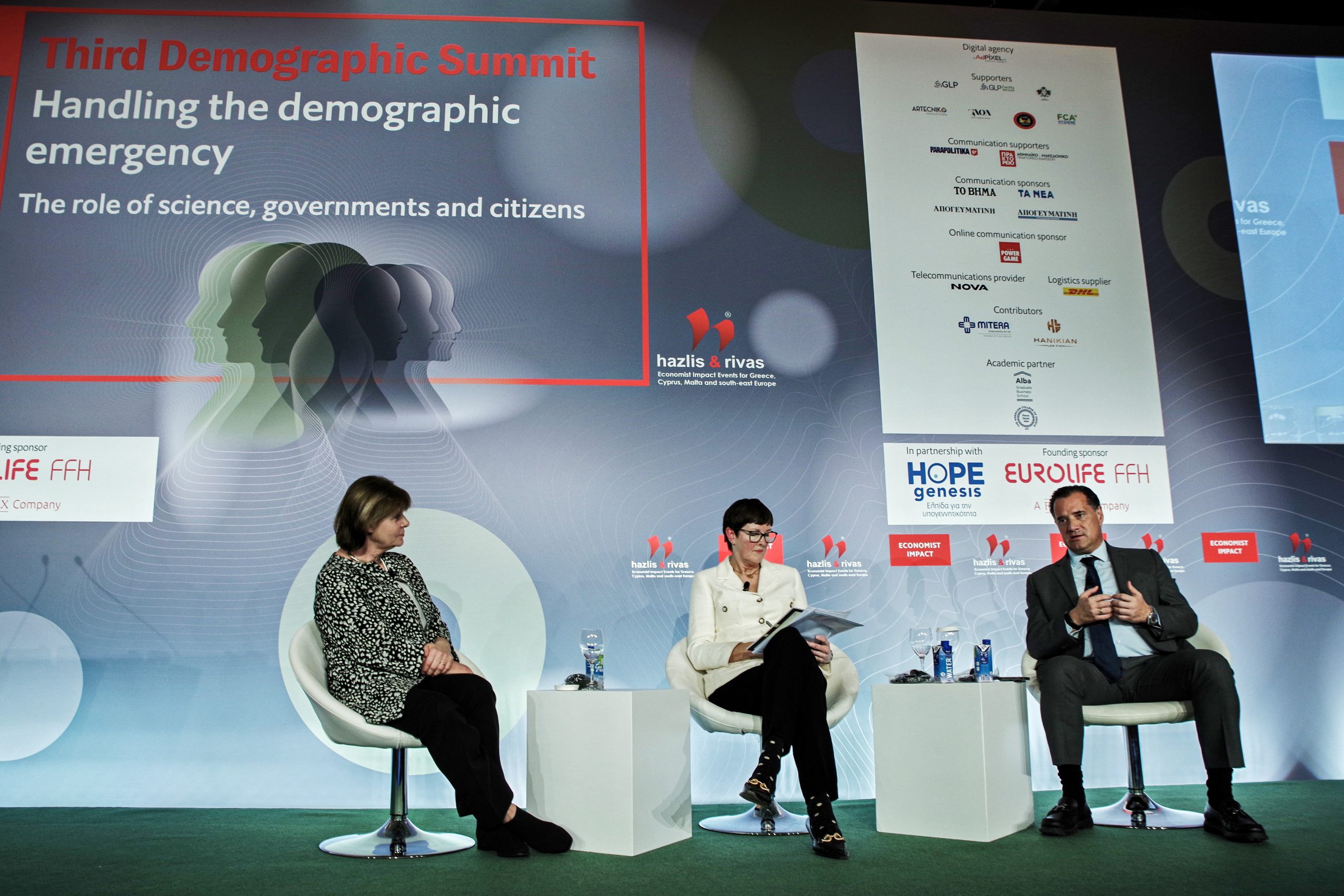Greece’s serious demographic problem was highlighted during a two-day event organized in Athens, January 18-19, by “The Economist” called “Handling the demographic emergency – The role of science, governments and citizens” in the framework of the publication’s 3rd Demographic Summit.
Demographics experts, economists, scientists, and policymakers sounded the alarm over population decline which decisively undermines sustainable and inclusive growth during the event while they also tabled proposals to reverse the negative trend in Greece.
Wolfgang Fengler, the CEO of the World Data Lab and former lead economist for the World Bank, was candid in his estimations about the country presenting a stark picture, as Greece is facing an acute demographic crisis with its population rapidly aging.
According to Fengler, five million Greeks are over 50 years old in the country’s 11 million population. “The numbers are unforgiving, he said. “We see a 9% decrease in births in Europe and an 11% decrease in Greece. The ages of the workforce are decreasing by 10% in Europe, compared to 15% in Greece.”
By 2040, the country is set to lose half a million from its workforce, Fengler estimated.
The main solutions presented at the conference were attracting skilled migrants and digital nomads, increasing the number of female employees in the workforce, adjusting the retirement age to take life expectancy into account, and putting early detection mechanisms in place so people can stay healthy longer.
Greece’s demographic forecast seems ominous, with the main burden on its labor market and retirement schemes.
According to predictions, in 2062 the average birth rate in Greece will not exceed 1.5 births per 1000 people.
Speaking at the conference, Minister of Labor and Social Security Domna Michailidou said that new policies should be implemented for those over 45 years old, given that the 25-45 age group suffers the lowest unemployment rates in Greece and Europe as a whole.



